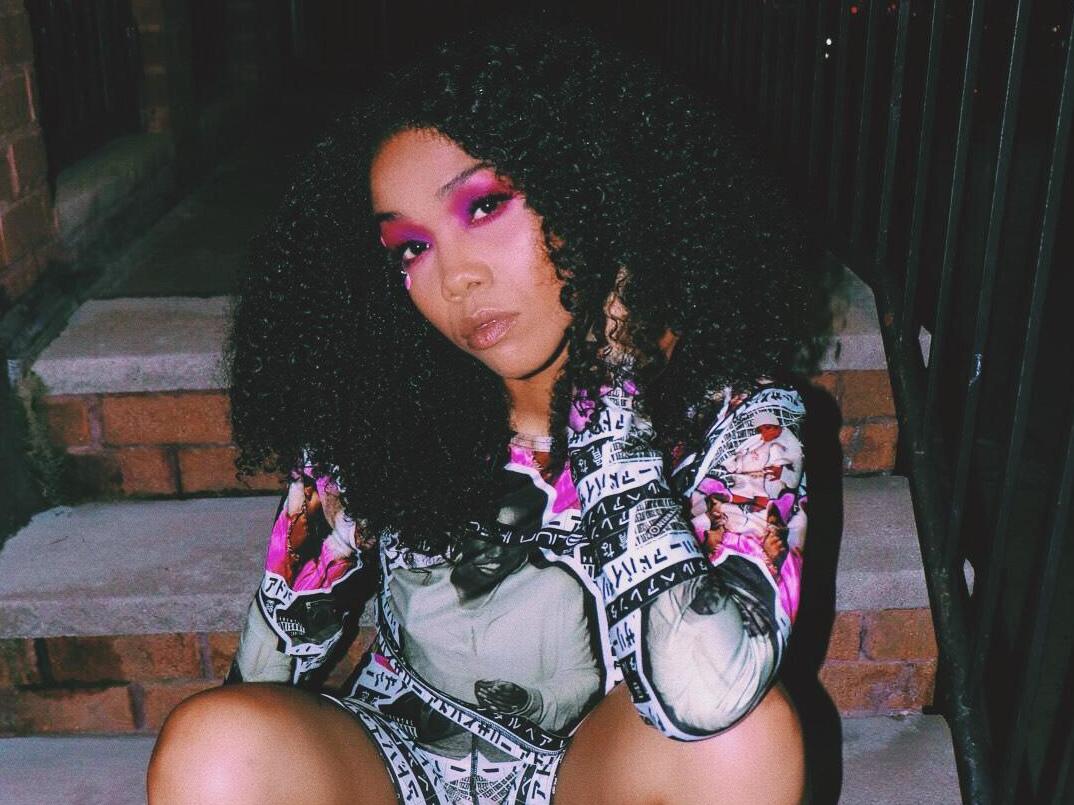The Independent's journalism is supported by our readers. When you purchase through links on our site, we may earn commission.
Outraged white tears about AfroFuture festival just proved we need spaces where white people aren't invited at all
White people have put communities of color through a veritable hell for centuries. So they can damn well pay 20 extra dollars to attend a festival that they arguably don’t have any business attending in the first place


Your support helps us to tell the story
From reproductive rights to climate change to Big Tech, The Independent is on the ground when the story is developing. Whether it's investigating the financials of Elon Musk's pro-Trump PAC or producing our latest documentary, 'The A Word', which shines a light on the American women fighting for reproductive rights, we know how important it is to parse out the facts from the messaging.
At such a critical moment in US history, we need reporters on the ground. Your donation allows us to keep sending journalists to speak to both sides of the story.
The Independent is trusted by Americans across the entire political spectrum. And unlike many other quality news outlets, we choose not to lock Americans out of our reporting and analysis with paywalls. We believe quality journalism should be available to everyone, paid for by those who can afford it.
Your support makes all the difference.Nationwide, people are having conversations about reparations and grappling with an inescapable reality: that white people in this country owe black people a huge debt. Recently, AfroFuture Fest — a Detroit-based music festival — implemented a ticket pricing structure designed to address that debt. They charged white festival-goers twice as much as people of color. A “POC” ticket cost $20 while a “non-POC” ticket cost $40. After an online outcry, all tickets will now cost $20 and white folks will be prompted to give an addition suggested donation.
The festival’s initial pricing structure prompted founts of white tears, with people slamming the festival as “racist” and complaining about the pricing structure violated anti-discrimination laws.
Rapper Tiny Jag — who was “unknowingly” added to the event but later agreed to play — refused to fulfill her commitment to play at the festival after seeing that white people were being charged twice as much. “This does not reflect the views of myself or the Tiny Jag team. I will not be playing this show,” she said in a Twitter statement. The Detroit-based rapper said that the controversy had “triggered” her and in her statement she also said: “I apologize for anyone who may have been triggered or offended.”
A cadre of right-wing websites, outraged white liberals, and white supremacist trolls began to attack those affiliated with the festival or defending their pricing structure as the controversy went international.
Adrienne Ayers, who goes by Numi, is the founder and co-director of AfroFuture Youth. Numi told the New York Times that after right-wing websites like Breitbart amplified the pricing structure, she, her co-director’s family, and the owner of the venue faced harassment and threats.
Frankly, it’s ridiculous that anyone feels that this pricing structure is unfair to white people. The statistics that illustrate racial wealth disparities in the US are infuriating. White families have a median wealth that is 41 times the median wealth of black families and 22 times the median wealth of Latinx families. Nearly 34 per cent of Native American children live in poverty, compared to only 10 per cent of white children, according to 2016 data. In his groundbreaking 2014 essay, “The Case for Reparations” writer Ta-Nehisi Coates details how slavery, Jim Crow, and unfair housing practices have inhibited black wealth for hundreds of years. Colonization and ongoing genocide have also caused extremely high levels of Native American poverty.
In a Twitter thread, writer Ijeoma Oluo detailed why white outrage at the pricing structure for Afro FutureFest is ridiculous earlier today. Directing her comments at white liberals, she said that when they rail against the pricing structure they’re “saying that this slight adjustment is too much [to] ensure that whites don't snatch up [all] the tickets [black youth] can better afford. Too much take from you to benefit black youth whose resources have been reallocated time & time again to benefit whites.”
White people have put communities of color through a veritable hell for centuries. So, they can damn well pay 20 extra dollars to attend a festival that they arguably don’t have any business attending in the first place, since it’s intended to provide “immersive, intimate, and intentional space keeping for Afro-Black [futurists].”
Unfortunately, these kinds of white privilege-fueled meltdowns aren’t uncommon. Recently, a white woman went on a tirade because she wasn’t allowed to be a vendor — she sells her services as a “psychic” — at Denver’s Taste of Africa Festival. She said that the organizers were “passive aggressive white b**ches in black skin” because they refused her. The complete meltdown that white people had upon learning of AfroFuture’s pricing structure only highlights how much black-only spaces and spaces that center blackness are needed.
Preserving POC-only spaces is vitally important. And the more that white people feel comfortable entering those spaces, the more that they become unsafe for people of color. In the city I reside in, Denver, the annual Taste of Ethiopia Festival and the Juneteenth parade have more and more white folks attending every year. It diminishes the community aspect of these events, and gives us an added layer of fear — of experiencing racism or having the police called on us — that’s unfair.
My only issue with the AfroFuture Fest doesn’t lie in a nonexistent slight towards white people. I worry that it could unknowingly creates a situation in which racial purity based on phenotype might cause harm for people of color, the very communities that the pricing structure attempts to center.
When people buy tickets with certain discounts, they’re almost always expected to provide proof that they’re eligible. A student discount requires a class schedule, a military discount requires an active-duty, retired or dependent military ID, and a senior citizen’s discount requires proof of age. Not everyone requires these methods of confirmation, but anyone who buys the ticket — either online or on-location — is operating under the expectation that they will have to provide proof of their eligibility.
Those things are easily proven. They’re attached to tangible documents. However, one’s identity as a person of color is not as easily proven. For that, people most often rely on external observations about a person’s phenotype and appearance. Because there are two categories of tickets, and the tickets will be checked at the entrance, this pricing structure implies that ethnicity and race can always be detected by everyone, simply based on appearance. But appearances can be deceiving, and multiple phenotypes exist within communities of color. The failure to recognize this can have adverse effects.
Race-tiered pricing helps preserve vital POC-only spaces, and the AfroFuture Fest was right to consider this. But the very concept of Afro-Futurism aims to use wildly imaginative depictions of innovation, technology, and indigenous spirituality to explore the richness and power of the African Diaspora. So, while we can use these methods, we can also envision alternate ways of achieving our goals of reparations and sovereignty.
Join our commenting forum
Join thought-provoking conversations, follow other Independent readers and see their replies
Comments